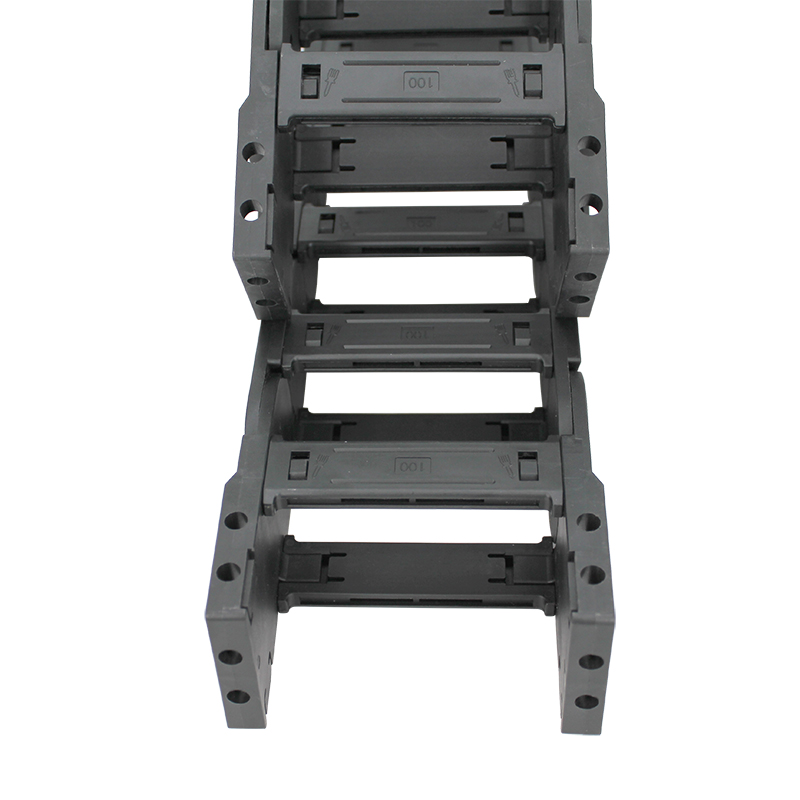electrical cable carrier
The Role of Electrical Cable Carriers in Modern Industry
In today's fast-paced industrial environment, the efficient management of electrical cables is essential for maintaining optimal workflow and safety. Electrical cable carriers have emerged as a vital solution for organizing, protecting, and facilitating the movement of cables in various settings. These carriers, also known as cable drag chains or cable carriers, play a significant role in preventing cable wear and tear, ensuring seamless operations in everything from manufacturing to telecommunications.
What is an Electrical Cable Carrier?
An electrical cable carrier is a mechanical system designed to guide and support electrical cables as they move with machinery or within fixed installations. Typically constructed from durable materials such as plastic, steel, or aluminum, these carriers provide a pathway for cables to move freely while minimizing friction and wear. The design of cable carriers allows for easy access to the cables they contain, simplifying maintenance and replacement when necessary.
Importance in Industrial Applications
The significance of electrical cable carriers can be seen across various industries. In manufacturing plants, for instance, machinery often requires large bundles of electrical cables to function. As machines move along production lines, cable carriers prevent excessive bending and dragging of cables, which can lead to damage and increased downtime. This is particularly important in automated systems where reliability and efficiency are paramount.
Additionally, in the field of robotics, cable carriers allow for unhindered movement of robotic arms. These systems must perform intricate tasks with precision, and managing the cables effectively ensures that operations run smoothly without the risk of entanglement or disconnection. Thus, cable carriers are pivotal in maximizing productivity and extending the life of electrical components.
Design Features and Variability
Cable carriers come in a variety of designs tailored to accommodate different cable types and operational needs. They may vary in size, flexibility, and load capacity, which allows them to be customized for specific applications. Some cable carriers are designed for high-speed motion and can handle significant amounts of cable weight, while others are built for high temperatures or harsh environmental conditions.
electrical cable carrier

For example, industries working in extreme conditions—such as mining or outdoor construction—benefit from specialized cable carriers that can withstand dust, moisture, and temperature variations
. Selecting the appropriate type of electrical cable carrier is crucial for ensuring safety and operational efficiency.Installation and Maintenance
Installation of electrical cable carriers is generally straightforward, but requires careful planning to ensure that they operate effectively within a specific environment. Proper alignment, support, and securing of the cables within the carriers are essential steps. Routine maintenance, including checking for wear and tear and ensuring that no cables are pinched or damaged, is crucial to prolonging the lifespan of both the cables and the carrier systems themselves.
The Future of Cable Management
As technology continues to advance, the demand for sophisticated cable management solutions is likely to increase. Innovations in materials and designs will enhance the performance of electrical cable carriers, potentially integrating smart technology to monitor cable conditions in real-time. This would enable early detection of potential issues before they become critical, further ensuring safety and efficiency in industrial settings.
Additionally, the growing trend towards automation and robotics in industries will continue to highlight the importance of effective cable management solutions. As manufacturers and businesses strive for greater efficiency and reduced costs, the role of electrical cable carriers will only become more pronounced.
Conclusion
Electrical cable carriers are an essential component of modern industrial operations, providing effective solutions for organizing and protecting cables in various environments. Their importance in maintaining efficient production lines, ensuring safety, and extending the life of electrical components cannot be understated. As industries evolve and technology progresses, so too will the innovations surrounding cable management, solidifying the role of electrical cable carriers in the future of industrial operations.








